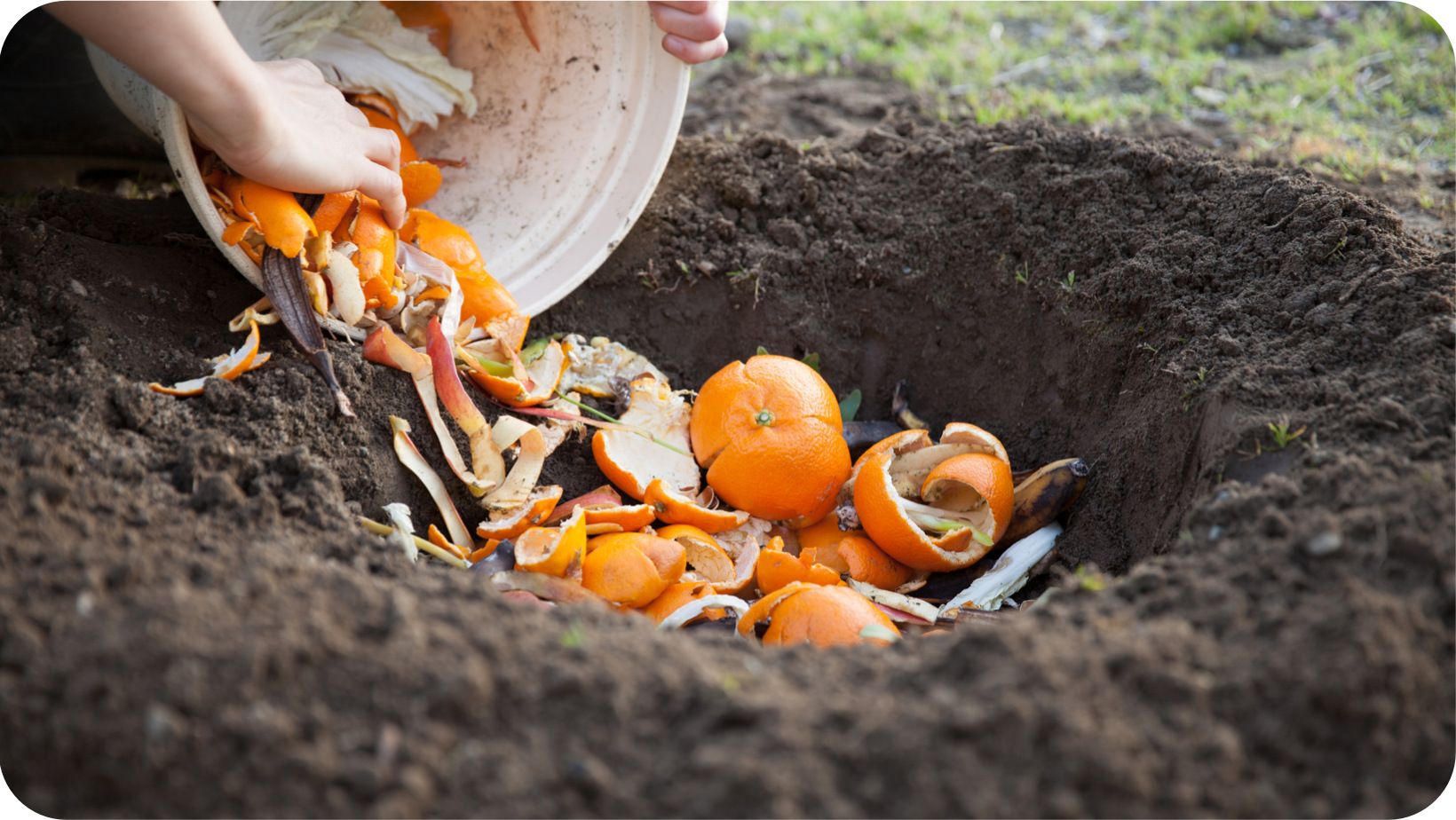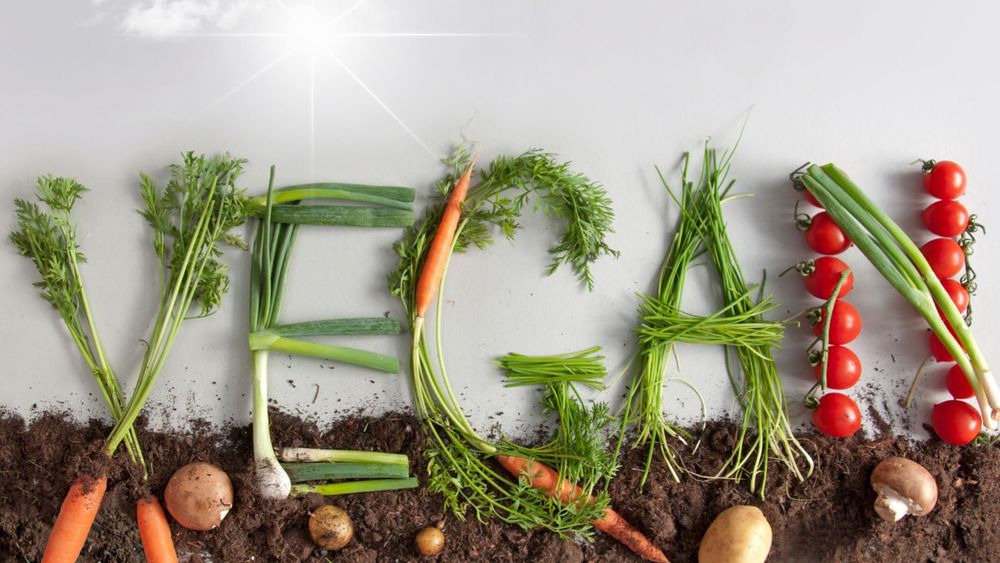Veganic gardening: Save the planet with green manure
A nod to the worm that nourishes your soil. Gardening is a great way to get close to ecosystems bustling with wildlife. It improves wellbeing, provides food, and its growing popularity has meant that councils are reducing the size of allotments to ease waiting lists.
Unfortunately, horticulture isn’t often cruelty-free or vegan, and animal agriculture causes global deforestation. Fertiliser toxins can be fatal to insects and smaller animals, and compost typically uses bone meal, fish bones or faeces, which encourages animal husbandry.
Award-winning garden journalist Matthew Appleby recognises that many gardeners are unaware of the harmful impact non-veganic methods have on the environment, animals or their health: “they may not know their gardening, and growing their own is part of the problem.” Luckily, an abundance of advice is available to help garden veganically.
What is veganic gardening?
Veganic gardening avoids chemicals and animal products or derivatives. Vegan gardening harmonises with nature and encourages biodiversity, ensuring wildlife is not damaged. Non-veganic processes erode natural symbiosis, which can lead to unhealthy ecosystems.
Veganic processes differ from traditional methods as they discourage tilling or digging soil as it “essentially kills the intricate network of life below the ground upon which the life aboveground depends”. As bare soil can be washed away with rain, along with nutrients, it is best to populate the earth with plants, mulching and green manure.
Polyculture and crop rotation can help control pests naturally and without chemicals. Polyculture is also a strategy to help sustainably reduce invasive plants and diseases. Cultivate a balanced ecosystem by introducing natural predators and prey, such as ladybugs and aphids, which co-exist among your plants. You can also plant herbs that repel pests naturally: mint can control ants, aphids, and mosquitoes. Rosemary and basil repel mosquitoes and flies. And why not befriend ‘pests’ by planting ‘sacrificial’ plants for them to feast on?
Some matters appear cruelty-free, like collecting manure, as they don’t seem to harm an animal directly; however, there can be indirect harm - manure typically comes from animals in captivity or farmed for food production, such as dairy cows. Commercial manure often uses pig and poultry manure as fertilisers. Horse manure is usually derived from horses bred for riding and racing. An alternative is to create ‘green manure’ made from organic vegan material, from simply allowing uprooted plants and vegetables to decompose, to using grass mixtures and legume plants.
Vegan compost can be made from weeds, dried leaves, wood chips, twigs, and immature crops like alfalfa, hemp, and fenugreek. The Vegan Society also lists some easy swaps from traditionally animal-based to vegan gardening products.

okugawa/Getty Images via Canva Pro
Can veganic fight against climate change?
When garden designer Cleve West transitioned to veganism, he became an advocate for the restorative power of gardens and how plants can mitigate destructive aspects of the Anthropocene. West also formed the UK’s first vegan garden festival.
The UK’s leading gardening charity, the Royal Horticultural Society (RHS), has a strategy to fight climate change “from the ground up,” and provides support for gardeners to help make their backyards more sustainable because collectively, we can go ‘climate positive’, meaning capturing and reducing more greenhouse gas emissions than emitted.
And every little does help:
• Replacing one metre square of paving slab with perennial plants helps store carbon; every 1kg of homemade compost saves 0.1kg of fossil carbon.
• If the 21% of UK gardeners who use power tools switched from fossil fuel to green energy electric-powered tools, it would save enough carbon equivalent to driving around the planet 29,820 times.
• Instead of using mains water supplies for the garden, a water butt that captures rain could save millions of litres. Find out more at RHS.
What if you don’t have a garden? How can you get involved?
You may dream of rewilding the Gardens of Versailles into a haven for bees. However, if you don’t have a garden, small patios and balconies are still essential to welcome pollinators, with foliage overspilling from windowsill planters or green beans climbing walls from pots. Vegetables can be grown in containers, and there’s always room for herbs sown in-between marigolds or growing in jam jars in a sunny part of the kitchen.
Allotments are another option, with friends often sharing the responsibilities and produce. Collective and urban gardens are vital in promoting collective change, as we must all work together to save the planet. Additionally, community gardens are generally big enough to plant trees, and trees are excellent carbon stores. “If every UK gardener planted a tree in their community, school, workplace or their backyard and brought it to maturity, the carbon stored would be equivalent to 11 million car journeys around the planet”.
You can find or set up a communal garden and encourage veganic processes and invite people to rewild with schemes such as No Mow, allowing grass and wildflowers to flourish, and providing safer habitats for wildlife. There are also plenty of vegan gardeners to follow for tips and inspiration, including The Vegan Gardeners.
Increased health benefits and self-worth
Numerous health benefits have been associated with gardening. A previous meta-analysis concluded that gardening activities were associated with better general health, mental health (reduced stress and depression and anxiety symptoms), body mass index (BMI) scores, quality of life, and sense of community. Another study found that prisoners exposed to gardening had increased self-worth, decreased anxiety and depression, and reduced recidivism rates.
Veganic gardening has numerous benefits from mitigating climate change, to building communities and improving our health. For more information on horticulture, read rewilding in the UK with Vegan Land Movement, and save the earth: the biodiversity crisis nobody is talking about.
